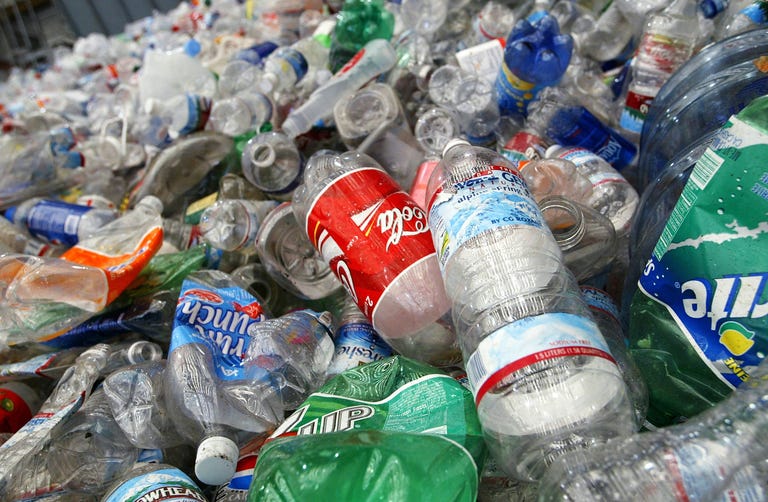Researchers Accidentally Find Enzyme to Break Down Plastic
The enzyme could help clean up our polluted oceans and landfills.
By Avery Thompson
GETTY IMAGESJUSTIN SULLIVAN / STAFF
Plastics come in all kinds of different types with all kinds of different properties, making them some of the most versatile and durable materials ever produced. But that durability comes with a cost, as discarded plastic piles up on land and in the oceans.
We can sometimes recycle plastic and use it again, but the recycling process is expensive and limited. One group of researchers may have accidentally found a better way, developing an enzyme that can break down polyethylene terephthalate (PET), the type of plastic used in water and soda bottles.
This plastic is extremely common, with over a million bottles sold per year, so learning how to break it down would go a long way toward making our oceans and other waterways a little less polluted. To combat the plastic epidemic, the researchers turned to a discovery made a few years ago: a strange bacteria living in Japanese landfills that somehow learned to digest plastic.
This bacteria digests plastic the same way any living thing digests anything—with an enzyme, a specialized molecule that makes certain chemical reactions easier. After studying this bacteria, the researchers found the enzyme, which is similar to the enzyme many bacteria already use to break down a different chemical, called cutin. Cutin is a plastic-like substance produced by plants as an external, protective coating. The scientists hypothesized that this new plastic-eating enzyme must have evolved from an older cutin-eating enzyme.
While testing this hypothesis, the researchers managed to create a new version of the enzyme that works even better. According to the researchers, their newly-created enzyme can break down PET about 20 percent faster than the enzyme developed by the bacteria. “It is a modest improvement,” said lead study author John McGeehan to The Guardian, “but that is not the point. It’s incredible because it tells us that the enzyme is not yet optimised.”
With a few years of development, scientists might be able to improve the enzyme even further, to the point where it becomes economically feasible to use inside of an industrial process. It will be a while before that happens, but in a few years we might start finally getting rid of some of our plastic for good.
Source: The Guardian
No comments:
Post a Comment